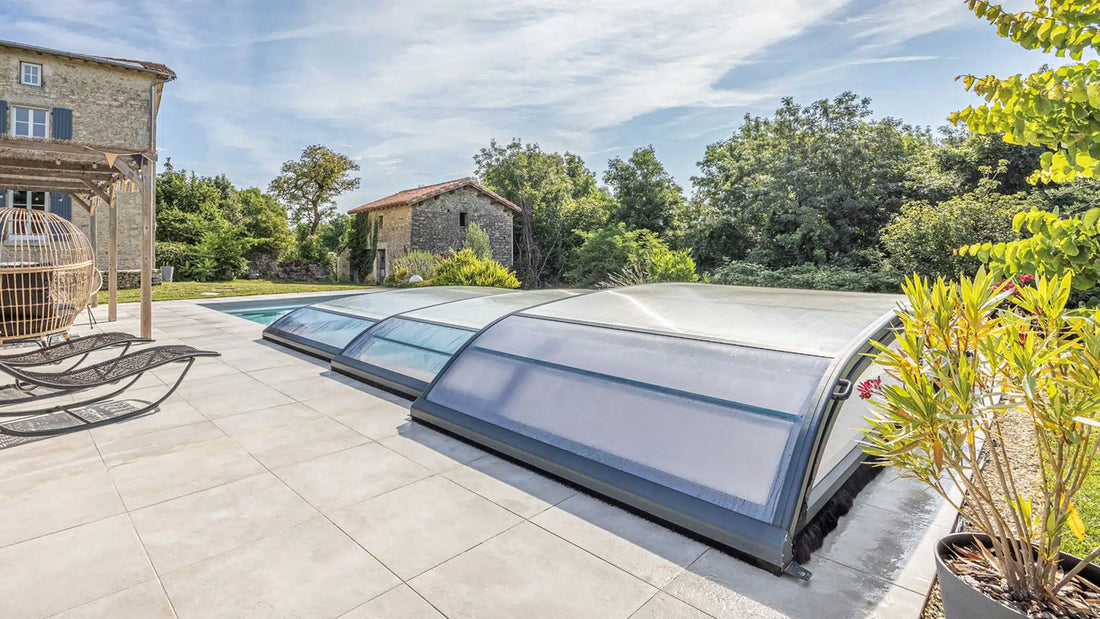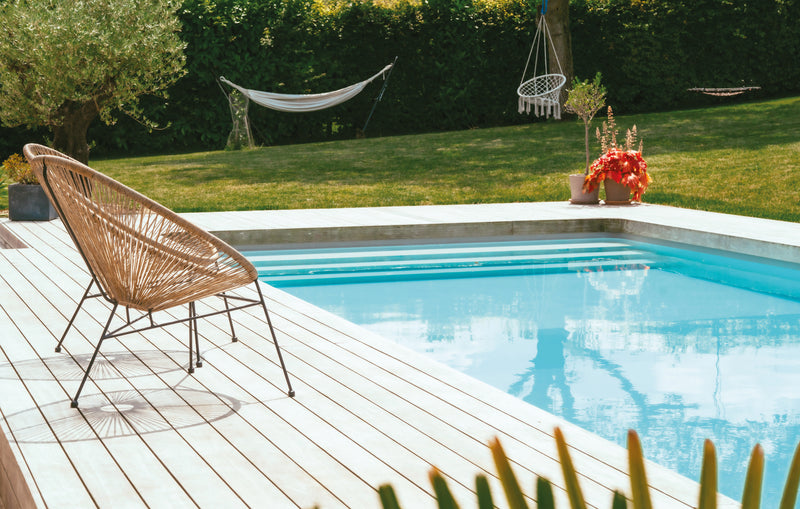- Welcome
- Desjoyaux advice
- fr_FR
-
How to heat a swimming pool?
How to heat a swimming pool?
Posté leA swimming pool, whether above-ground or in-ground, is a place of relaxation and enjoyment. However, to fully enjoy it, it is essential to maintain a comfortable water temperature. In this article, we will explore various methods for efficiently heating your pool water, with an emphasis on sustainable and economical solutions.

Bubble Cover (or solar cover): Simple and Effective
The bubble cover is placed directly on the surface of the pool water. It is made up of thousands of tiny air bubbles that form an insulating layer between the water and the outside air. These bubbles play a key role in trapping heat in the water and reducing heat exchange with the fresh outside air.
- Performance : Although it doesn't actively heat the water like a heat pump or shelter, the bubble cover allows you to gain a few degrees during the day. It is particularly effective at limiting heat loss.
- Installation : Very easy to install, it can be cut to fit the shape of the pool. Handling is also simple: the cover can be rolled up or unrolled manually or with a reel, which facilitates its daily use.
- Cost : This is one of the most affordable options for pool heating, with a low initial cost.
Bonus: Bubble wraps and pool covers prevent water evaporation. Bubble wraps help limit water usage during the season.
Pool Enclosures: Protection and Heat Retention
Pool enclosures, whether fixed or removable, act as a protective cover over the pool. They create an enclosed space that secures the pool, protects it from external pollution, and also retains the heat of the water and air inside, creating a greenhouse effect.
- Performance : Pool enclosures are extremely effective at retaining heat. They can provide up to +10°C of heat gain. They help maintain a higher water temperature, reducing the need for additional heating. They also extend the swimming season by protecting the pool from the elements.
- Installation : Installing a pool enclosure can vary in complexity depending on the model. Removable models are generally easier to install than fixed structures such as residential enclosures, which can be attached or leaned against a residence. Regardless of the model, it is best to hire a certified installer to install your enclosure.
- Cost : The cost of pool enclosures varies considerably depending on their size, materials used, and design. Fixed and tall structures are generally more expensive than removable models.
Heat Pump for Swimming Pools: Efficiency and Thermal Comfort
A pool heat pump is a highly efficient heating system that uses calories from the outside air to heat the water. It works on the principle of thermodynamics, capturing thermal energy from the air and transferring it to the pool water. This process is made possible by a heat exchanger and a compressor integrated into the pump.
- Performance : Heat pumps are known for their high energy efficiency. They can maintain a constant and comfortable water temperature, regardless of climate variations. In addition, they are capable of quickly heating large volumes of water, making them ideal for pools of all sizes, whether above-ground or in-ground.
- Installation : Installing a heat pump requires professional intervention, as it involves electrical and hydraulic connections. It is important to choose a suitable location for the outdoor unit, ensuring that it has sufficient space for adequate ventilation.
- Cost : There are complete ranges of heat pumps that can heat all pools from the smallest to the largest.
Electric Pool Heater: Simplicity and Speed of Heating
The electric pool heater heats the water by passing it through an electrical resistor.
- Performance : Electric heaters are particularly popular for their ability to heat water quickly. They are ideal for small to medium-sized pools or second homes, where rapid temperature rise is often desired.
- Installation : Installing an electric heater is generally simpler than installing a heat pump. It requires a proper electrical connection and must be integrated into the pool's water circulation system. It is recommended to hire a professional to ensure the installation complies with electrical safety standards.
- Cost : The initial cost of an electric heater is often lower than that of a heat pump. However, its operational cost can be higher, especially for pools used frequently or for long periods.

